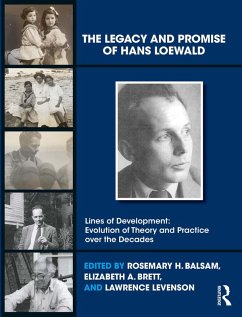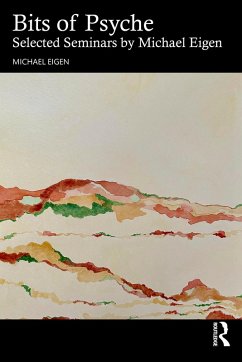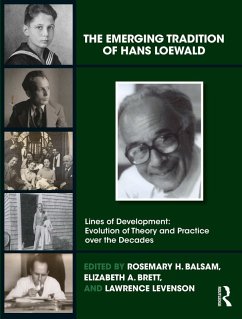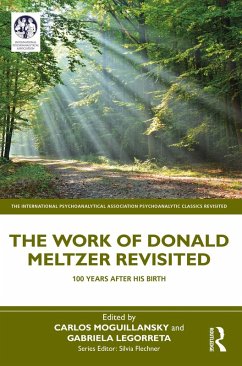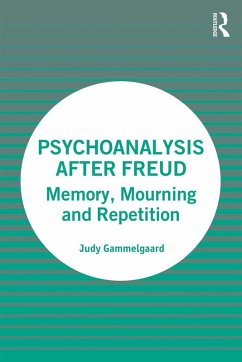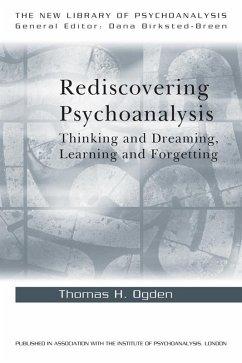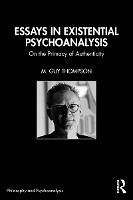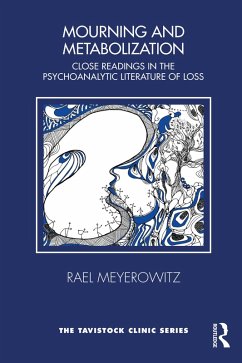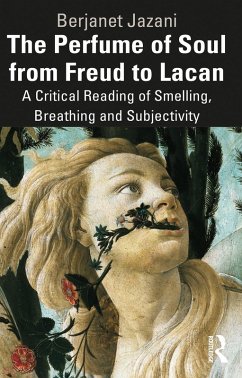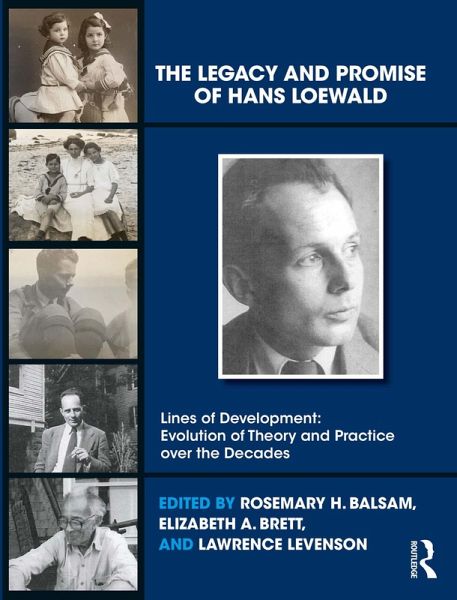
The Legacy and Promise of Hans Loewald (eBook, ePUB)
Versandkostenfrei!
Sofort per Download lieferbar
34,95 €
inkl. MwSt.
Weitere Ausgaben:

PAYBACK Punkte
17 °P sammeln!
Alongside its continuing volume, The Emerging Tradition of Hans Loewald, this rich collection of essays addresses the current lack of familiarity with the ideas and life of the eminent psychoanalytic teacher and scholar, Hans Loewald (1906-1993), by presenting the most comprehensive account of his work ever produced.Its chapters present Loewald's intellectual history and his reception in the North American psychoanalytic scene, as well as clinical developments from his thinking and their importance for the future. An obituary, written by a close friend, also provides a summary of Loewald's per...
Alongside its continuing volume, The Emerging Tradition of Hans Loewald, this rich collection of essays addresses the current lack of familiarity with the ideas and life of the eminent psychoanalytic teacher and scholar, Hans Loewald (1906-1993), by presenting the most comprehensive account of his work ever produced.
Its chapters present Loewald's intellectual history and his reception in the North American psychoanalytic scene, as well as clinical developments from his thinking and their importance for the future. An obituary, written by a close friend, also provides a summary of Loewald's personal and professional life. With the benefit of authors being able to detect the functions and place of Heidegger's teaching in Loewald's thought, this book will newly enlighten readers to Heidegger's place in Loewald's expansive, open-system vision of the psyche.
Featuring contributions from those who worked directly with Loewald, and those inspired by his ideas, this book will be essential reading for any psychoanalyst or psychotherapist working today.
Its chapters present Loewald's intellectual history and his reception in the North American psychoanalytic scene, as well as clinical developments from his thinking and their importance for the future. An obituary, written by a close friend, also provides a summary of Loewald's personal and professional life. With the benefit of authors being able to detect the functions and place of Heidegger's teaching in Loewald's thought, this book will newly enlighten readers to Heidegger's place in Loewald's expansive, open-system vision of the psyche.
Featuring contributions from those who worked directly with Loewald, and those inspired by his ideas, this book will be essential reading for any psychoanalyst or psychotherapist working today.
Dieser Download kann aus rechtlichen Gründen nur mit Rechnungsadresse in A, B, BG, CY, CZ, D, DK, EW, E, FIN, F, GR, HR, H, IRL, I, LT, L, LR, M, NL, PL, P, R, S, SLO, SK ausgeliefert werden.




